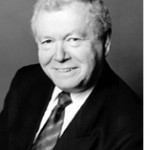By Rabbi Dow Marmur

JERUSALEM–Prime Minister Yitzchak Rabin was murdered twenty years ago not by a fanatical Palestinian foe but by an ostensibly pious and patriotic Jew. Though it’s not possible to speculate about what Israel would be today had Rabin stayed alive, it is possible to suggest that the murderer, Yigal Amir, changed the history of Israel and not for the better.
The mayor of Carmiel may have a point when he says that Amir’s friends are now in the government.
Many politicians now in power were in the forefront of the anti-Rabin campaign when he declared his commitment to peace. Though they shouldn’t be accused of being responsible in any way for his assassination, it’s difficult to imagine that they aren’t relieved that his plan was thwarted.
Perhaps some of them would even like to see Amir go free. That may be the reason for President Rivlin’s public assurance that Amir won’t get a presidential pardon while he’s in office.
Whereas when Rabin was alive it was possible to foresee an end to the conflict with the Palestinians and to thwart much of the hostility toward Israel in the world, now we can only dream about peace with little or no realistic basis for it.
Significantly, in his address at the Rabin commemoration in the Knesset the other day, Prime Minister Netanyahu didn’t talk much about peace but about Rabin’s commitment to a strong Israel that could defend itself in all circumstances. This isn’t wrong, of course. Rabin was the Chief of Staff during the Six Day War. But, like so much that politicians say, it’s not the whole truth. Rabin wanted a strong Israel to be able to afford to make peace; Netanyahu seems to want a strong Israel in the hope of not having to make peace.
We don’t know what Netanyahu thinks and feels about the assassination but it’s not unreasonable to believe that had Rabin stayed alive, Netanyahu may not have had the electoral success that he’s still enjoying.
Tzipi Hotovely, Netanyahu’s deputy in the foreign ministry (he retains that portfolio too) – one of the most undiplomatic representatives of the State of Israel imaginable whose only visible qualification for the job is her political extremism – articulated her vision of the flag of Israel flying over the Temple Mount. She had to be restrained, presumably by her boss, to “clarify” that this was a personal opinion and not government policy. Having just tried to accommodate the king of Jordan, the prime minister of Israel didn’t want to deepen the crisis over the Temple Mount.
[I cited recently Professor Avi Sagi who wrote that flying that flag there after the conquest of the Old City in 1967 is the root of the troubles today.]
In the midst of the many commemorations of Rabin’s death it seems more appropriate to suggest that though his murder is remembered, what he stood for has been largely forgotten. Palestinians in their apparent desperation and Israelis in their apparent determination are deepening the conflict. All that’s left for us on “the far and extreme self-hating left” is to fantasize about peace, not to assume that it’ll actually happen.
Homage to the dead prime minister won’t bring about peace; following in his footsteps might. Unfortunately, Israel’s voting majority thinks otherwise.
*
Rabbi Marmur is spiritual leader emeritus of Holy Blossom Temple in Toronto. Now residing in Jerusalem, he may be contacted via dow.marmur@sdjewishworld.com